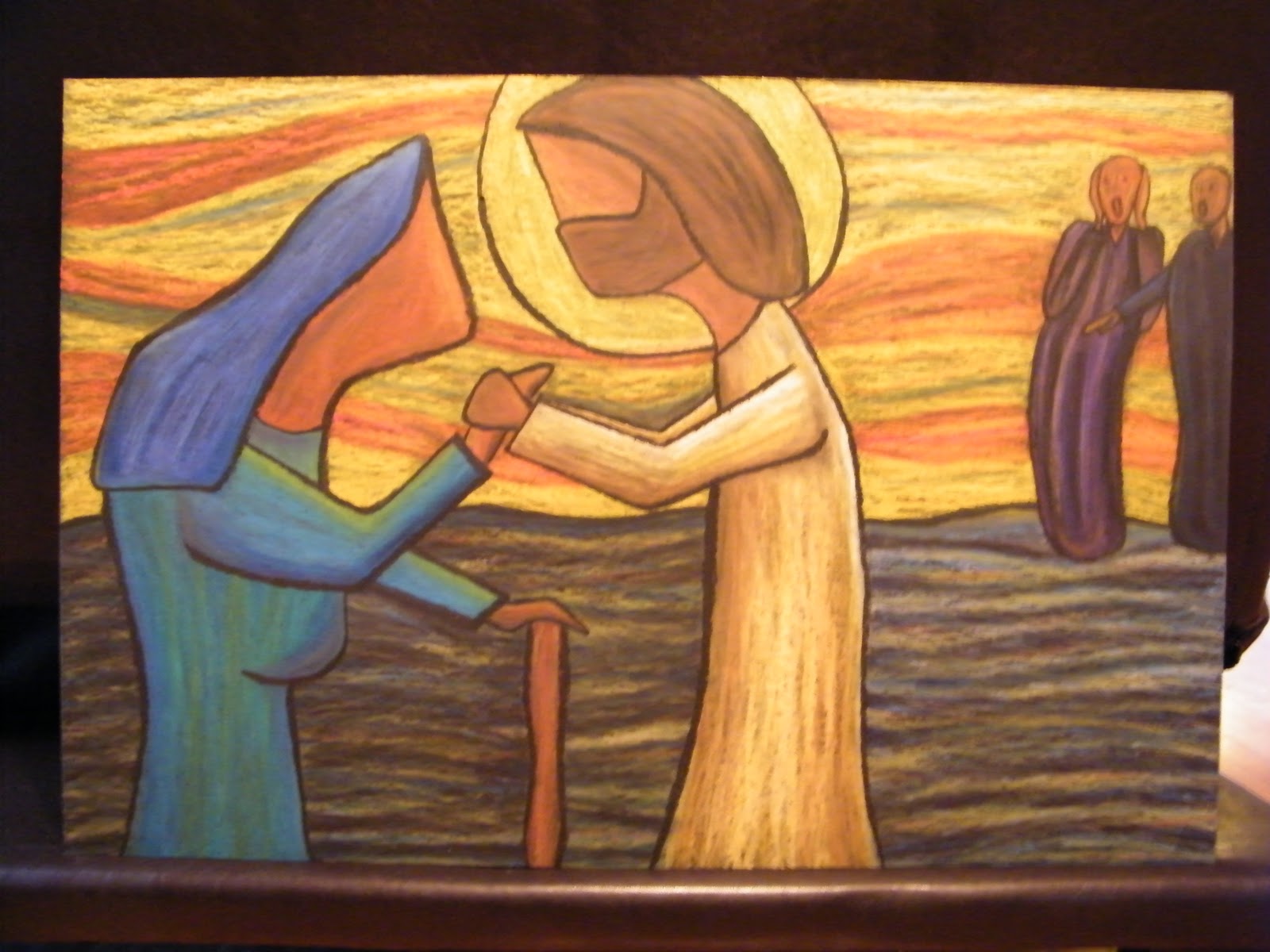
Setting People Free
According to tradition, Luke was a physician. As such, he would have spent his life in the service of others: caring for, ministering to, and healing. To be so drawn to Jesus as to have been baptized, become a follower and written a gospel, I have to believe that Luke found a like-minded kindred-spirit in Jesus. But Jesus’ expanded the definition of healing from simply healing the body, to healing the soul and healing society.
It’s in Luke 4 that Jesus’ reads from the scroll in the synagogue: “The spirit of God is upon me, because God has anointed me to bring good news to the poor. God has sent me to proclaim release to the captives and recovery of sight to the blind, to let the oppressed go free, to proclaim the year of God’s favor.”
This is the healing that Jesus, in the Spirit of God, has come to accomplish. And the stories in Luke provide examples of how he does just this.
So, let’s look at the story of the bent-over woman in Luke 13.
In our culture today, we talk about medical issues all the time, Googling those that we don’t know. Especially as we get older, we trade stories of ailments and injuries, medications, treatments and cures. If we heard of a bent-over woman today we’d wonder what caused it – spinal cord injury, osteoporosis, disk degeneration? And if we heard she was healed we’d want to know specifically how! How were damaged bones, tissue and nerves repaired? But in this story of a woman who has been bent-over for 18 years and is healed by Jesus in seconds, Luke the physician cares nothing about any of this. So, perhaps we need to look deeper than the physical healing. Perhaps Luke is trying to say much more about who this God is that we know through Jesus.
This story forces us to examine a few things theologically – specifically the conflict in theology between Jesus and the synagogue. The key pieces are a woman healed on the Sabbath. The stances of the leaders of the synagogue versus Jesus reveal clearly their different understandings of the intentions and nature of God.
If we look at the bent-over woman symbolically, she represents one who is marginalized or oppressed by society and religion. She is burdened, long-suffering, And, as one who would not be able to stand straight to look anyone in the eye, she is over-looked, not seen and invisible. Jesus, however, points out that she is a daughter of Abraham and Sarah. This woman is part of the tribe, part of the family, and she is important. For Jesus, God is compassion, healing and inclusion.
The leaders of the synagogue symbolize the oppressors who support the status quo. These men are concerned with rules over compassion. And for them, God is the judge and the gatekeeper.
Interestingly, the leaders are not really concerned about the healing itself, but the fact that it occurred on the Sabbath. Jesus' words and actions force them to examine this more closely. As John Shea asks in his commentary, The Relentless Widow, "Is God really concerned about restricting the activity of people, even healing activity, on the Sabbath? Is not God concerned with freeing people from what bends them over and bringing them to full stature?"
This is not a random healing or a random story told by Luke. It’s clear, God wants the restoration of people to full, abundant life. God sees those who are invisible. God sees the marginalized. And this healing is not just about the physical, but about restoring one to the fullness of living, where they are not outcast, ignored or weighed down with immense burdens. This healing is emotional and spiritual.
Our job, as followers of Jesus’ teaching is to help people stand up straight again, and with dignity and equality be full participants in this crazy thing called life.
God didn’t create money, or power structures, or governments, or religious institutions. God didn't make religious or societal rules and laws that judged a person’s worthiness based on their color, sexual orientation, ability, age, gender, race or whatever. God didn’t set up a hierarchy that put men over women. God didn’t decide who could marry who. God didn’t make borders, or countries.
It’s people who have made all the rules of exclusion, and elitism, and it will be up to people, led by the Spirit of God, to set the people free from being bent over.
Love & Light!
Kaye



